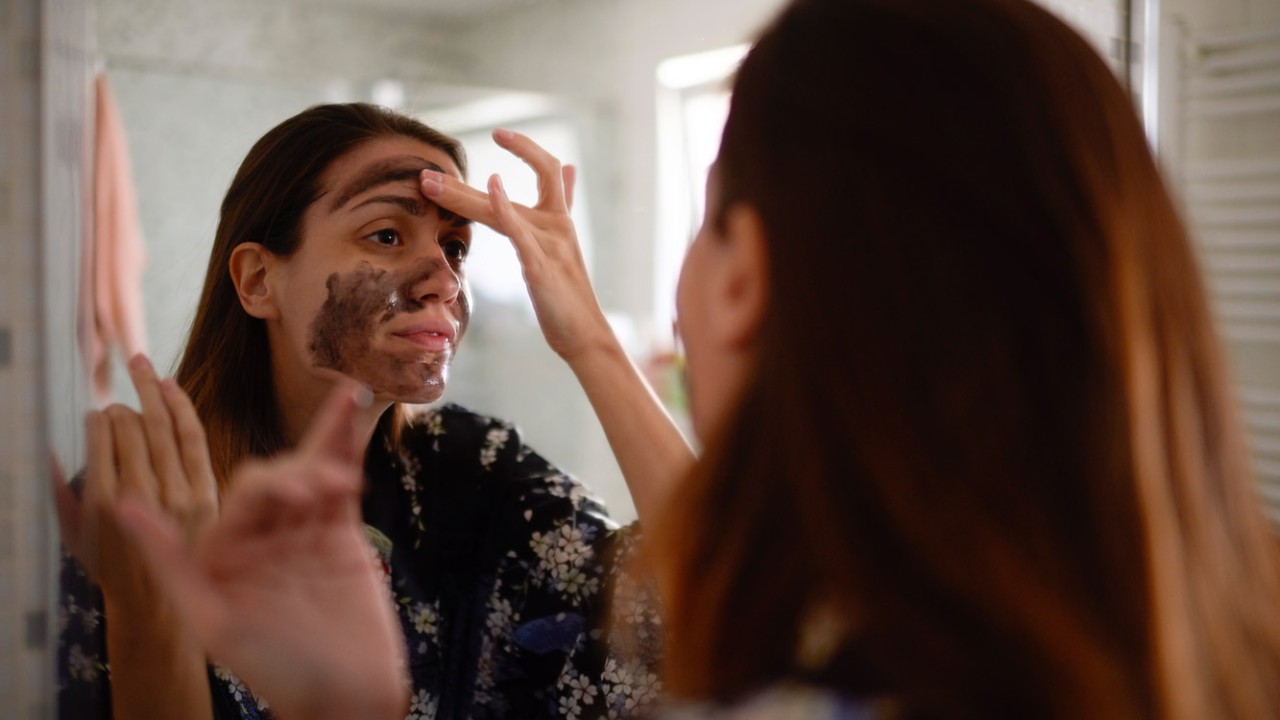Acne: 7 tips against bad skin
Painful pustules, oily skin, unsightly scars: Acne can severely affect your quality of life. These home remedies will help you feel more comfortable in your skin.

Acne is a common and long-term skin disorder and should always be treated by a dermatologist. The annoying inflammations on the face, neck and back are usually treated with peeling agents such as benzoyl peroxide or vitamin A acid. Hormones and antibiotics are also used. However, if you only suffer from mild acne or individual spots and blackheads, you can also achieve a visible improvement with simple home remedies.
-
Less is more
People who struggle with blemished skin are often tempted to use countless cosmetic products. The already stressed skin is quickly over-cared for. Better: only wash your face with lukewarm water in the morning so as not to destroy the skin's natural protective barrier. Then pat dry with a fresh cloth and apply a sunscreen with a high sun protection factor - even in winter. You should choose a light fluid or gel that does not contain comedogenic substances and is non-greasy. In the evening, a non-irritating washing emulsion is sufficient to remove dirt and sebum from the skin. Moisturizing creams are not necessary, as the skin will moisturize itself after some time of "cosmetic withdrawal".
-
Healing clay
Natural clay is a great addition to your daily skincare routine: If you treat yourself to a face mask from time to time, you can visibly improve the appearance of your skin. The clay in the earth has an anti-inflammatory, antibacterial, soothing, degreasing and cleansing effect. Another plus: Healing clay is rich in minerals and trace elements such as magnesium and iron and stimulates blood circulation. The complexion immediately appears fresher and healthier.
-
Sweat in chamomile steam
Warm steam opens the pores and protects against blockage of the sebaceous glands. Here's how: heat the water, bend over the pot with a large towel over your head and sweat. If you like, add two bags of chamomile tea to the water. Chamomile has an anti-inflammatory and antibacterial effect and accelerates the skin's healing process. By the way: if you sweat while exercising, you flush your pores from the inside, so to speak. However, the sweat should always be washed off thoroughly afterwards.
-
Evening primrose oil
You can do something good for your skin by taking evening primrose oil capsules. The oil is said to have an anti-inflammatory effect on blemished skin and a stabilizing influence on the psyche and hormone balance, which in turn can have a positive effect on skin health. However, patience is required: The therapy in tablet form must be continued for at least four weeks in order to achieve initial success.
-
Zinc
The active ingredient is considered anti-inflammatory and stimulates wound healing, but oily creams and ointments should be avoided. It is better to apply a light zinc emulsion in a thin layer. Used internally, zinc can also support the skin in the event of inflammation: Around 30 to 50 milligrams of zinc per day are recommended.
-
Antiseptic wound cream
Almost everyone has antiseptic wound creams in their bathroom cupboard. However, they are usually only used for abrasions, lacerations, cuts and scratches. But: The creams also work wonders on inflamed pimples. It is best to dab the affected areas with a cotton bud in the evening after cleansing your face.
-
Change towels and pillowcases
Bacteria like to romp around on damp towels and used pillowcases. Tip: For severe cases of acne, towels should be washed every day and pillowcases after three nights at a temperature of at least 60 degrees.



